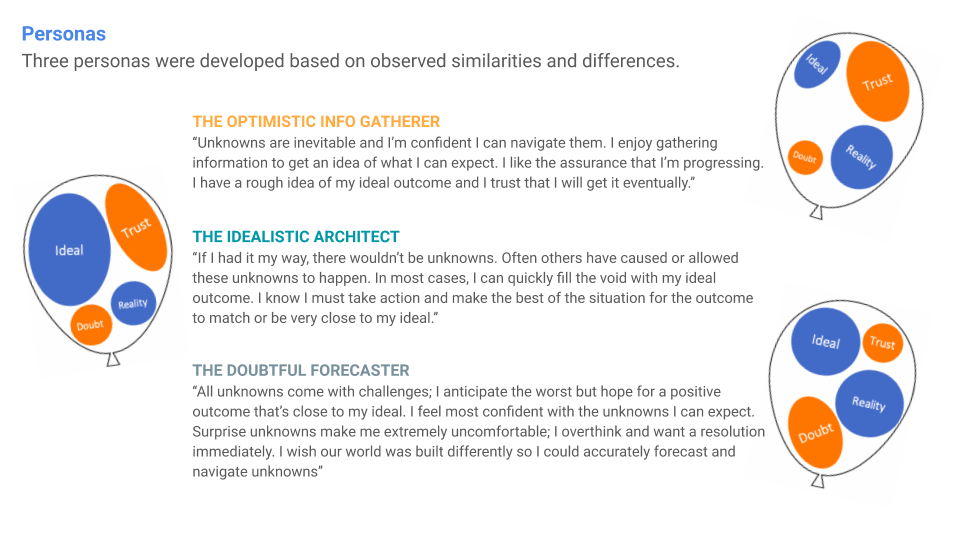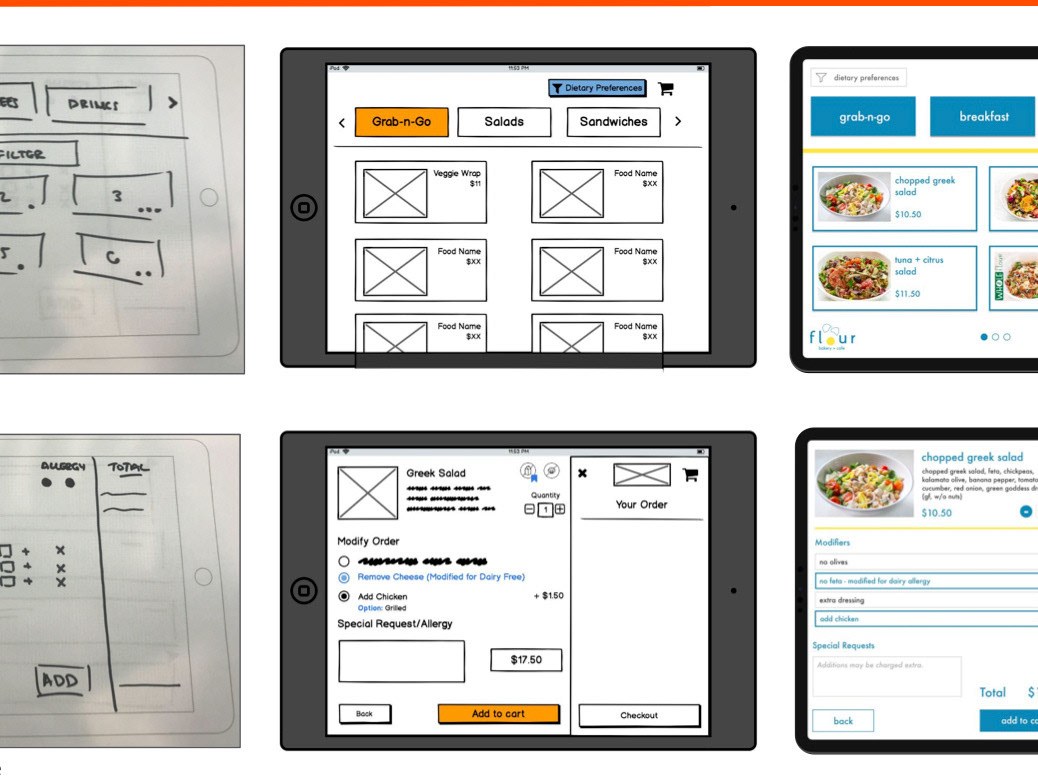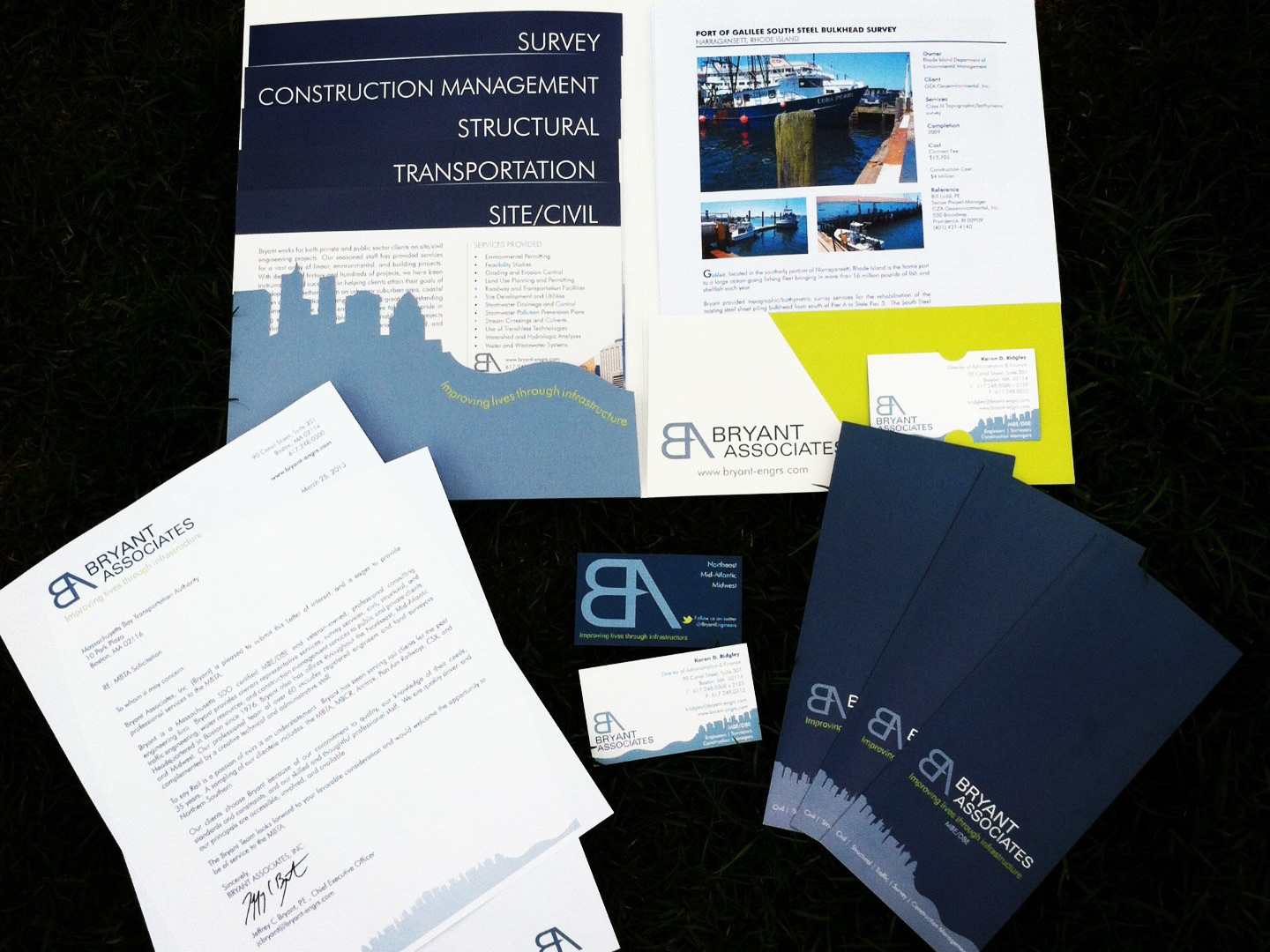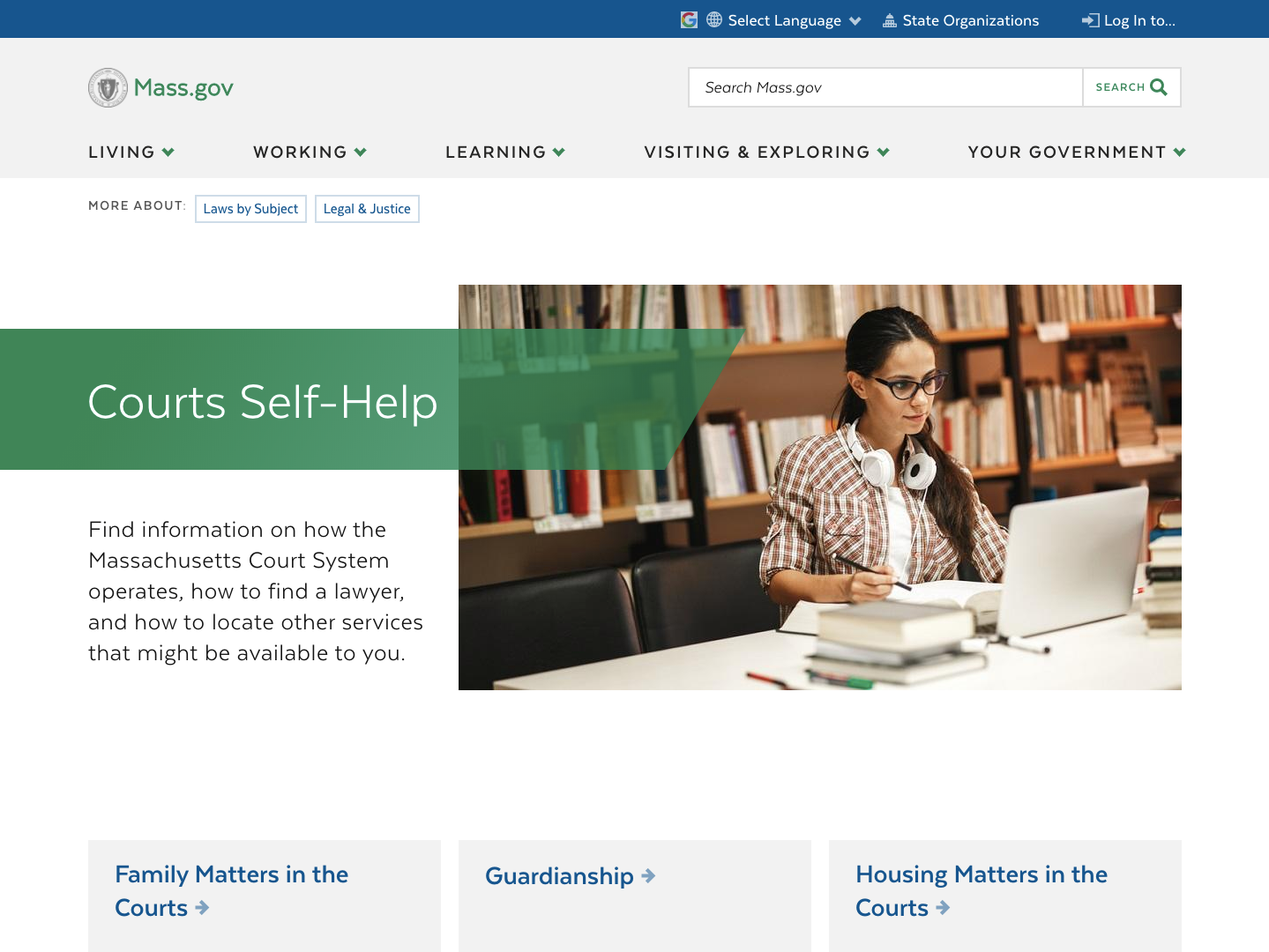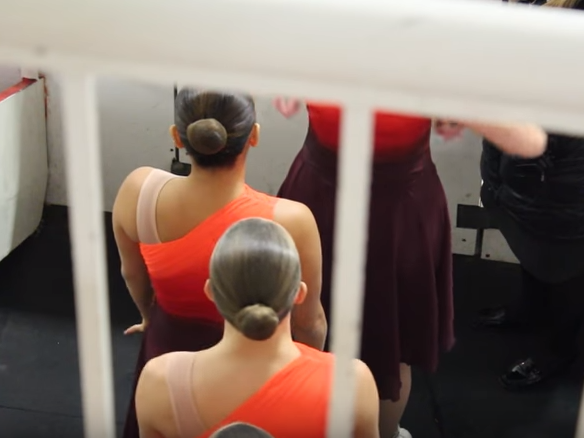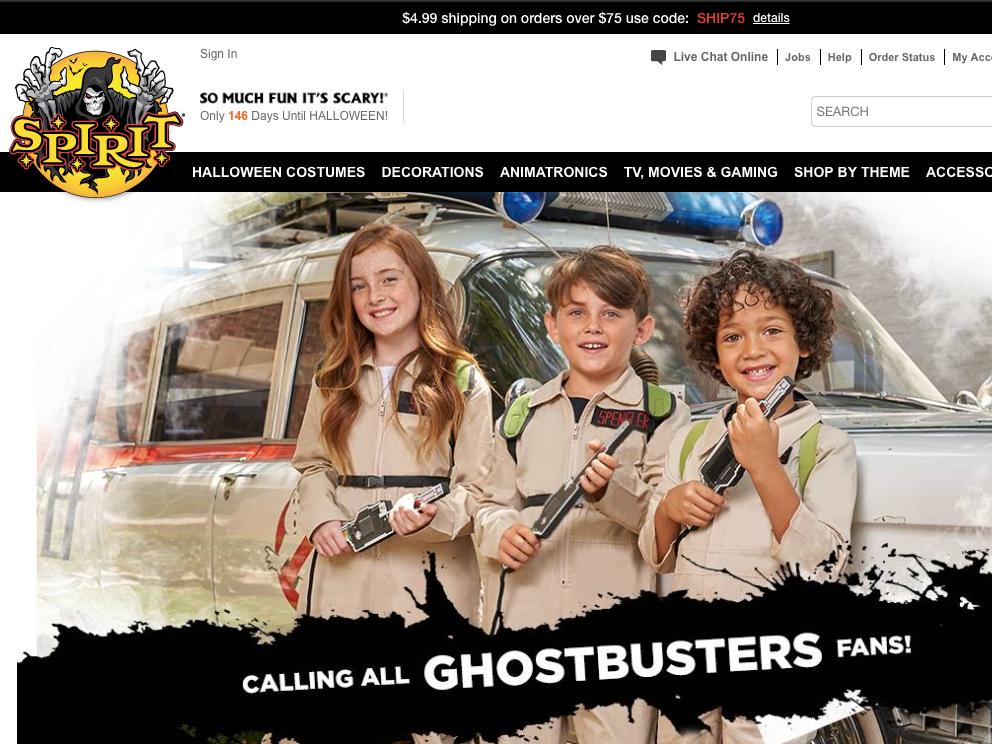Project Summary
The client wanted to learn about people’s expectations for the unknown and anxiety-mitigating characteristics of complex experiences to help them create a more positive experience for people coming to the courts. I conducted activity-based interviews to answer their discovery research questions. Based on my findings I recommended court-specific solutions that aimed to make people feel more confident and in control when faced with the unknown.
Background
Client Problem
The Massachusetts Trial Courts Office of Diversity, Equity, Inclusion & Experience, aims to create a more positive experience for people coming to the courts. They know the court process is complex and often has unknowns, which adds to the emotional burdens of its users. They asked Bentley student researchers to explore analogous experiences and answer their most pressing questions so they can ultimately improve the at-court experience.
Research questions I addressed:
– How do people manage expectations for the unknown?
– What are aspirational, anxiety-mitigating characteristics of complex experiences?
My Role
UX Researcher
I worked individually on this project. My work included developing the research protocol, conducting interviews, performing data analysis, and developing client recommendations.
The Process
Methodology
In order to answer the client’s research questions I used the NCredible framework, developed by the twig+fish research practice. The framework is driven by research questions and provides a roadmap/structure to the research process. For more information on the framework please check out this article on Medium.
For this discovery research project I developed an activity-based protocol and conducted individual interviews with 5 participants. I performed qualitative data analysis and developed three personas. Based on my findings, I recommended that the client work toward making people feel confident and in control.
Challenges and Limitations
– No budget to recruit participants, therefore participants were from a diverse sample of friends and coworkers
– Limited time to conduct research due to the intensive nature of the class, therefore interviews were chosen over a more resource-intensive method, like diary studies
Deliverables
Client deliverables included:
– Research plan, including timeline and study design
– Research protocol, including activities and moderator’s guide
– Report of thematic findings, personas, and recommendations
Result
Based on qualitative data from the interviews I developed thematic findings and personas. My findings led me to develop recommendations that would help the client create a more positive court experience.
Recommendations
In order to improve the court experience, the client should implement characteristics to the experience that make people feel confident and in control when faced with the unknown.
Some of my recommendations to the client included:
– Help people build a more accurate representation of what they might expect by connecting people with experts or others who have gone through the same situation
– Provide people with feedback on their progress throughout the experience so they can better manage their expectations and anxiety
– Aim to curb people’s worries about what can go wrong by giving them opportunities to practice
– Do your best to address people’s insecurities by communicating the role of the court
Next steps
I recommended that the client revisit their initial research questions and consider any new questions they have after this study. Once they have gathered all their questions, determine what realities and aspirations they want to focus on for the next phase in the NCredible framework, an exploratory research study.
Sample of work

Interview activity 1
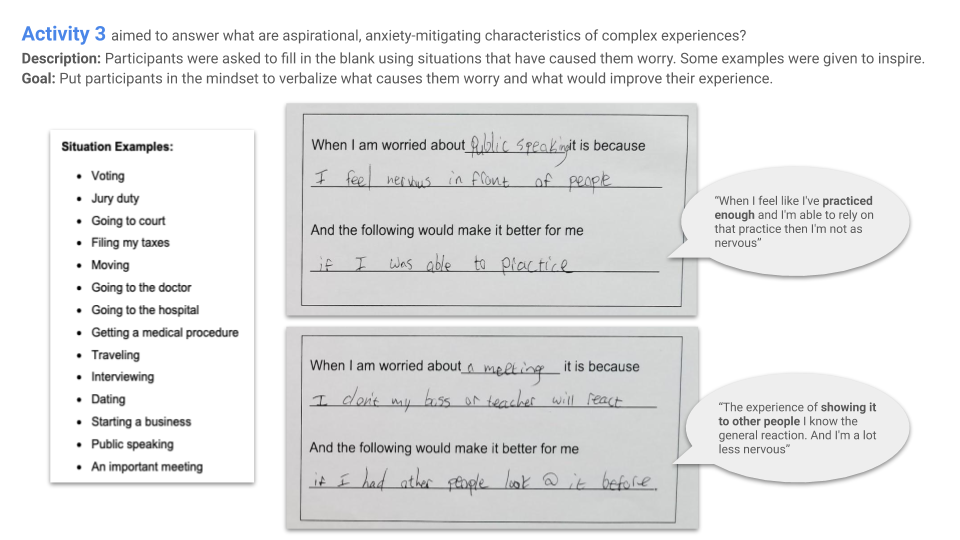
Interview activity 3

Sample of thematic findings
